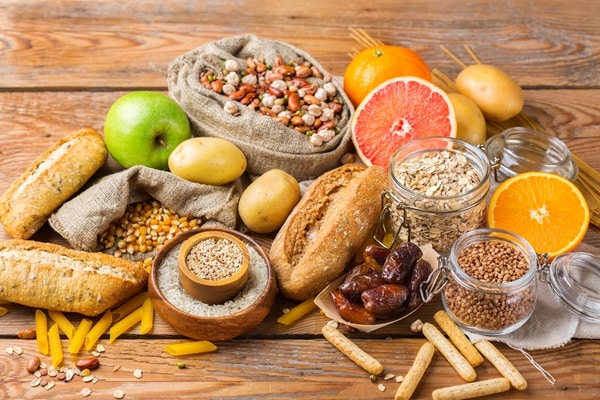Gut health is fundamental to overall well-being, influencing everything from your digestion to your immune system. Probiotics and fiber are two crucial elements that promote a healthy digestive environment, offering a protective barrier against various ailments. This post delves into the steps necessary to enhance gut health through these vital nutrients. By incorporating more probiotics and fiber into your diet, you can help restore balance and ensure your digestive system operates at its best.
Contents
The Essentials of Gut Health

A healthy gut does more than aid digestion; it is integral to your immune response, mood regulation, and overall vitality. A well-balanced gut microbiome, which comprises various beneficial bacteria, is crucial for processing food and protecting against pathogens. Imbalances in this microbiome can lead to issues such as IBS, bloating, allergies, and even anxiety or depression. Recognizing the interdependence of gut health with other aspects of well-being is essential for maintaining a holistic approach to health.
Maintaining gut health requires awareness of how lifestyle factors like diet, stress, and medication affect your microbiome. Changes in these areas can impact the diversity and function of gut bacteria significantly. Symptoms such as gas, bloating, and changes in bowel movements can indicate disruptions in gut health. By observing these signs and responding appropriately through diet or lifestyle adjustments, you can take proactive steps toward sustaining a healthy gut environment and improving your overall health.
The Role of Probiotics

Probiotics are beneficial microorganisms that play a crucial role in maintaining gut health by restoring and maintaining the balance of intestinal flora. These live bacteria and yeasts are particularly effective in treating and preventing digestive disorders, boosting immune function, and potentially improving mental health outcomes. Regular intake of probiotics can help mitigate the effects of gastrointestinal issues, reduce the incidence of colds and flu, and even positively affect mood and cognitive function.
To incorporate probiotics into your diet, focus on fermented foods such as yogurt, kefir, sauerkraut, miso, and kimchi. These foods naturally contain live cultures that can enhance the diversity of your gut flora. For those who may not prefer the taste of fermented foods, probiotic supplements are an excellent alternative. When choosing a supplement, it’s crucial to select one with strains that have been scientifically proven to be effective for your specific health concerns, ensuring you gain the maximum benefit from your probiotic regimen.
The Power of Fiber

Fiber is a key component of a gut-friendly diet, essential for regular bowel movements and the maintenance of a healthy microbiome. It acts as a prebiotic, feeding the good bacteria in the gut, which in turn helps to fight inflammation and may lower the risk of certain cancers. A high-fiber diet is also linked to reduced risks of developing heart disease, diabetes, and obesity, showcasing the wide-reaching benefits of this nutrient.
Increasing your fiber intake can be as simple as incorporating more fruits, vegetables, whole grains, and legumes into your meals. These foods not only provide fiber but also a range of nutrients that support overall health. It’s important to increase fiber gradually to prevent digestive discomfort and to pair it with adequate water intake to aid in the fiber’s beneficial effects. This gradual integration helps your body adjust without the negative side effects of a sudden dietary change.
Incorporating Probiotics into Your Diet

Adding probiotics to your diet is a strategic move for enhancing gut health and overall well-being. Eating a variety of fermented foods not only introduces beneficial bacteria into your gut but also helps diversify the microbiome, which is crucial to its function and resilience. Each type of fermented food can contribute to different strains of bacteria, thus broadening the spectrum of your gut flora and enhancing its ability to combat disease and aid digestion.
For those opting for supplements, it’s essential to choose high-quality probiotics that guarantee live and active cultures. The effectiveness of a probiotic supplement depends on its ability to deliver its bacteria alive to the gut. To ensure you’re getting the most from these supplements, pay attention to the specific strains used, the CFU count, and proper storage conditions. Consulting with a healthcare provider can also help tailor your choice to your personal health needs, ensuring optimal gut health support.
Increasing Fiber Intake Safely

Incorporating more fiber into your diet is beneficial for gut health, but it’s crucial to do so carefully to avoid digestive discomfort such as bloating and gas. Gradually increasing the amount of fiber allows your digestive system to adjust without discomfort. Begin by adding fiber-rich foods like berries, nuts, seeds, and whole grains in small amounts, and observe how your body reacts before making them a regular part of your diet.
It’s equally important to increase your water intake as you increase your fiber consumption. Fiber absorbs water, which helps to soften and increase the bulk of the stool, making it easier to pass. If your water intake is insufficient, increased fiber can lead to constipation instead of relieving it. Monitoring your body’s response to these changes can help you adjust your diet to find a balance that works for your digestive health.
Combining Probiotics and Fiber

Combining probiotics and fiber is a powerful strategy for maximizing gut health. Fiber serves as a food source for the beneficial bacteria introduced by probiotics, helping these microorganisms to thrive and exert their health benefits. This symbiotic relationship enhances the resilience of the gut microbiome, contributing to improved digestion and stronger immune defense.
Meal planning can effectively integrate both probiotics and fiber into your diet. Consider incorporating a probiotic yogurt with a high-fiber granola for breakfast or a lunch that includes a mixed salad (high in fiber) dressed with sauerkraut (rich in probiotics). Planning your meals not only ensures a balanced intake of these key nutrients but also helps in maintaining a diverse and robust microbiome.
Monitoring Your Progress

Tracking your progress is crucial when making dietary changes to improve gut health. Keeping a food and symptom diary can help you identify which foods are benefiting your gut health and which might be causing issues. Note changes in digestion, energy levels, and any other symptoms related to gut health. This documentation will be invaluable for understanding how your body reacts to different foods and supplements.
Be attentive to positive signs of improvement such as more regular bowel movements, less bloating, and increased energy. These indicators can guide your dietary choices, helping you to fine-tune your intake of fiber and probiotics. If symptoms persist or adverse effects occur, this may suggest the need to adjust your dietary approach, possibly with professional guidance to ensure your actions align with your health needs.
Addressing Challenges and Misconceptions

Embarking on a journey to improve gut health can come with its challenges, including initial digestive discomfort as your body adjusts to increased fiber or different probiotic strains. It’s important to understand that such reactions can be normal and often temporary as your gut microbiome changes. Patience and gradual adjustment are vital in minimizing discomfort and achieving a balanced gut.
Misconceptions about probiotics and fiber can also hinder your progress. Some may believe that more is always better, but overconsumption of fiber can lead to discomfort, and excessive probiotic intake might not be beneficial and could disturb the gut flora balance. It’s essential to debunk these myths and adopt a measured, informed approach to dietary changes. Everyone’s digestive system is unique, and what works for one person might not work for another. Understanding and adjusting to your body’s responses is crucial for improving gut health effectively.
Unlock the Secrets to Lasting Gut Health
As you set out on the journey to enhance your gut health through probiotics and fiber, remember that the key to success is balance and patience. Experiment with different foods and supplements to discover what best suits your body’s needs. Be observant and responsive to how your body reacts, and allow yourself time to see the positive changes. Sharing your experiences and results can also provide valuable insights and support as you continue to nurture your gut health for long-term well-being.


